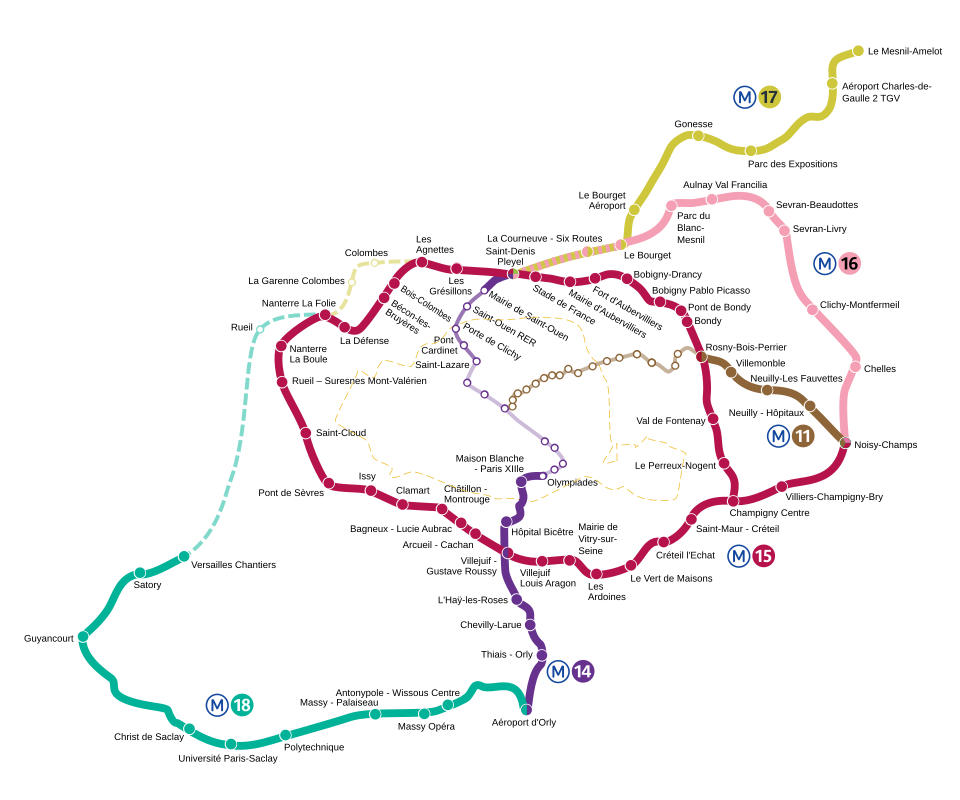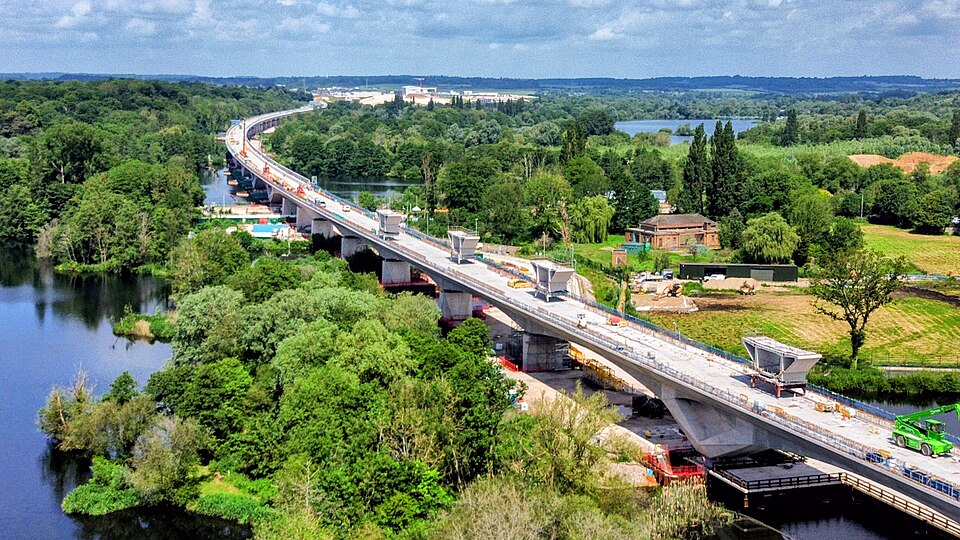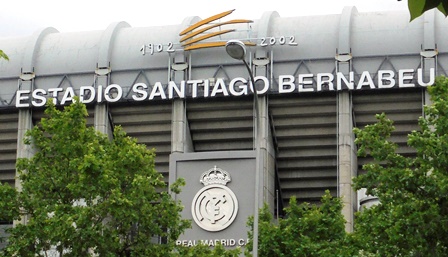10 Largest Construction Companies in Europe: Leaders Shaping the Industry
The largest construction companies in Europe are transforming skylines, redefining infrastructure, and setting sustainability benchmarks worldwide. From mega projects to digital innovation, these firms are the true powerhouses of the global construction market.
The European construction market is one of the most competitive and advanced globally, accounting for trillions in infrastructure development annually. Europe’s leading construction companies are setting global benchmarks for scale, quality, and sustainability, from transport networks and renewable energy plants to urban megaprojects and green building technologies.
In this article, we rank the 10 largest construction companies in Europe, analysing their revenues, specialisations, and major projects. Beyond numbers, we explore how these firms drive the transition to sustainable infrastructure, shape the European construction industry, and influence projects far beyond the continent.
Methodology: How We Ranked Europe’s Construction Leaders
To rank the largest construction companies in Europe, this list considers:
- Revenue (latest annual financials).
- Number of employees and geographic presence.
- Scale of projects delivered globally.
- Role in sustainability, green building technology, and the green energy transition.
- Reputation in the construction market in Europe.
10 Largest Construction Companies in Europe: Leaders Shaping the Industry
Here is a complete list and detailed analysis of the 10 largest construction companies in Europe. Let’s delve into them.
1. VINCI (France): Europe’s Infrastructure Titan
VINCI is not just the largest construction company in Europe; it’s a global leader shaping transport, energy, and concessions. With over 285,000 employees in more than 120 countries, VINCI blends traditional construction expertise with long-term infrastructure ownership models such as airports, motorways, and utilities.
Headquarters: Rueil-Malmaison, France
Founded: 1899
Revenue: €65+ billion
Major Projects
- Grand Paris Express Metro: Europe’s largest urban transport project, expanding Paris’ metro network with 200 km of automated lines.
- London Gatwick Airport Expansion: Upgrading capacity to meet post-pandemic travel growth.
- Tours–Bordeaux High-Speed Rail Line: A flagship European rail project cutting travel times dramatically.
- Stade de France Stadium: Host to major global sporting events.
Why They Lead
- Diversification: From highways to hospitals, VINCI covers all major infrastructure sectors.
- Innovation: Heavy investment in digital construction and clean energy infrastructure.
- Sustainability: Committed to reducing emissions and supporting the green energy transition.
2. ACS Group (Spain): The Global Contractor
ACS is a construction giant with global reach, operating through subsidiaries like Hochtief (Germany) and Dragados (Spain). The company excels in civil engineering, industrial services, and infrastructure concessions across multiple continents.
Headquarters: Madrid, Spain
Founded: 1997
Revenue: €38+ billion
Major Projects
- Hoover Dam Bypass Bridge, USA: One of North America’s most challenging bridge projects.
- M-30 Madrid Ring Road, Spain: A European urban highway construction landmark.
- Santiago Bernabéu Stadium Renovation, Spain: A futuristic transformation of one of the world’s most famous football stadiums.
- Renewable Power Plants in Latin America: Expanding ACS’s role in clean energy.
Why They Lead
- Global Footprint: Operations span Europe, the Americas, Asia, and Australia.
- Engineering Complexity: Known for handling mega infrastructure projects.
- Synergies with Hochtief: Strengthens its role as one of the top construction firms in Europe.
3. Bouygues Construction (France): The Diversified Giant
Bouygues is one of Europe’s most diversified contractors, balancing construction with telecoms and media operations. Its global presence extends into Africa, Asia, and the Middle East. Its global workforce of 35,600 employees is in more than 50 countries.
Headquarters: Paris, France
Founded: 1952
Revenue: €42+ billion
Major Projects
- Channel Tunnel (UK–France): One of the greatest engineering achievements of the 20th century.
- Tour First La Défense Redevelopment, Paris: A modern office tower design showcase.
- Philharmonie de Paris Concert Hall: A cultural landmark integrating architecture and acoustics.
- Grand Paris Express: France’s flagship rail expansion.
Why They Lead
- Diversification: Unique mix of construction, telecoms, and media.
- Eco-Leadership: Champions eco-friendly construction technology.
- Global Presence: Works in 50+ countries with a strong focus on emerging markets.
4. Skanska AB (Sweden): Sustainability Pioneer
Skanska is synonymous with sustainable building solutions. With a long history dating back to the 19th century, it has become a global leader in green construction methods. With a strong 26,500 employees operating in a select market of the Nordics, the USA, and Europe, the company creates innovative and sustainable project solutions for healthy living.
Headquarters: Stockholm, Sweden
Founded: 1887
Revenue: €15+ billion
Major Projects
- New Karolinska Solna Hospital, Sweden: One of the world’s most advanced hospitals.
- The Gherkin (30 St Mary Axe), London: An architectural icon in London’s skyline.
- Elizabeth Line (Crossrail), UK: Key contractor in Europe’s largest rail project.
- Multiple LEED-certified Office Towers: Driving sustainable urban design.
Why They Lead
- Green Focus: Over 80% of projects certified under LEED/BREEAM.
- Innovation: Pioneer in smart building technologies.
- Reputation: Known globally as a leader in reducing construction’s environmental impact.
5. Hochtief AG (Germany): Engineering Excellence
Hochtief is part of the ACS Group but operates independently as one of Germany’s engineering powerhouses. Its expertise in tunneling and complex projects makes it globally respected.
Headquarters: Essen, Germany
Founded: 1873
Revenue: €25+ billion
Major Projects
- Gotthard Base Tunnel, Switzerland: The world’s longest railway tunnel.
- Elbphilharmonie Concert Hall, Hamburg: A landmark blending art and architecture.
- Athens and Sydney Airports: Global expansion into airport construction and management.
- Australian Mining Projects: Through subsidiary CIMIC Group.
Why They Lead
- Engineering Depth: Unparalleled tunnelling and underground construction expertise.
- Global Role: A key player in Asia-Pacific and Europe.
- Resilience: Over 150 years of adapting to changing markets with 157,000 employees.
6. Strabag SE (Austria): The Tunnelling Specialist
Strabag SE is one of the biggest construction contractors in Europe, with a stronghold in Central and Eastern Europe. It’s best known for tunnelling, railways, and large infrastructure projects. Strabag SE also has a market share in other countries such as Kenya, Uganda, and Canada. Its 86.000 workforce has achieved 250 innovative projects and 400 sustainability projects.
Headquarters: Vienna, Austria
Founded: 1835
Revenue: €18+ billion
Major Projects
- Alpine Base Tunnel, Austria: Strengthening Europe’s high-speed rail network.
- Stuttgart 21 Rail Project, Germany: Transforming urban connectivity.
- Sochi Winter Olympics Infrastructure, Russia: Delivered on a global stage.
- Eastern Europe Motorway Networks: Modernising regional infrastructure.
Why They Lead
- Tunnelling Expertise: Leader in underground works.
- Regional Strength: Dominates in Austria, Germany, and Eastern Europe.
- Innovation: Focus on digital construction and lean management.
7. Ferrovial (Spain): The Airport Innovator
Ferrovial is unique among European construction giants due to its airport ownership and management portfolio and smart city investments. Its 25,500-person workforce is spread over more than 15 countries. Ferrovial is part of Spain’s blue-chip IBEX 35 index and is triple listed on the Spanish Stock Exchanges, Euronext Amsterdam, and the U.S. Nasdaq.
They apply the principles of the United Nations Global Compact, which the company ratified in 2002, to all aspects of their operations. They are featured in internationally renowned sustainability indices, including the Dow Jones Best in Class Index (previously the Dow Jones Sustainability Index).
Headquarters: Madrid, Spain
Founded: 1927
Revenue: €7+ billion
Major Projects
- Heathrow Terminal 2, UK – A state-of-the-art aviation hub.
- 407 ETR Highway, Toronto, Canada – One of the world’s most profitable toll roads.
- Smart City Initiatives – In Madrid and Barcelona.
- Denver International Airport Expansion, USA – Major global aviation project.
Why They Lead
- Airport Expertise: A rare strength among global contractors.
- Smart Mobility: Integrating digital tech with infrastructure.
- International Reach: Strong portfolio in the Americas and Europe.
8. Eiffage (France): The Bridge Builder
Eiffage is known for iconic bridges, railways, and renewable energy projects, combining engineering with sustainability. With four divisions and eight business categories, the company generated 23.4 billion euros in revenue in 2024. The 84,400 workers in the group are dedicated to creating, designing, constructing, maintaining, and updating the cities and infrastructures of the future, all while being motivated by the company’s core principles.
Headquarters: Vélizy-Villacoublay, France
Founded: 1993, from a merger of Fougerolle (established in 1844) and SAE (established in 1924).
Revenue: €19+ billion
Major Projects
- Millau Viaduct, France: The tallest bridge in the world.
- LGV High-Speed Rail Lines, France: Transforming national mobility.
- Dakar-Diamniadio Toll Highway, Senegal: Expanding into Africa.
- Renewable Energy Parks: Large-scale European wind and solar.
Why They Lead
- Engineering Icons: Behind some of the world’s most recognised projects.
- Sustainability: Expanding renewable portfolio.
- Concessions Expertise: Long-term management of infrastructure assets.
9. Balfour Beatty (UK): Britain’s Infrastructure Backbone
Balfour Beatty is the UK’s largest contractor and has extensive utilities, rail, and urban regeneration work. The company prides itself on its humble beginnings. It has expanded to become a major infrastructure firm and an international company since George Balfour and Andrew Beatty opened for business in a modest office on the first floor of 22A College Hill, close to Cannon Street Station in London, in 1909.
Headquarters: London, UK
Founded: 1909
Revenue: €10+ billion
Major Projects
- HS2 High-Speed Rail, UK: Europe’s largest rail project.
- Thames Tideway Tunnel, London: A crucial upgrade to London’s sewer system.
- London 2012 Olympic Venues: A showcase of British engineering.
- National Grid Energy Infrastructure: Power transmission across the UK.
Why They Lead
- National Importance: Backbone of the UK’s infrastructure.
- Diversity: From rail to power networks.
- Reputation: A trusted contractor for decades.
10. Royal BAM Group (Netherlands): Holland’s Construction Footprint
Royal BAM Group is one of the largest construction companies in Europe, with expertise in civil engineering, residential and non-residential building, public-private partnerships, and infrastructure development. With over 13,000 employees, BAM has a strong footprint across the Netherlands, the UK, and Ireland, driving landmark projects that define modern European construction standards. The company integrates sustainability, digital innovation, and green building solutions into its operations, pioneering eco-friendly construction technology and smart infrastructure.
- Headquarters: Bunnik, Netherlands
- Founded: 1869
- Revenue: €7.3+ billion
Major Projects
- Afsluitdijk Reinforcement, Netherlands: A €550 million project to strengthen the iconic 32km dam against rising sea levels and climate change risks.
- Royal Albert Docks, London, UK: Revitalising 35 acres into a vibrant business district and mixed-use hub.
- Glanbia Cheese Factory, Portlaoise, Ireland: A sustainable food industry facility built to the highest energy efficiency standards.
- Forth Replacement Crossing, Scotland: Part of the largest infrastructure project in Scotland, involving advanced bridge engineering.
Why They Lead
- Sustainability Champion: Early adopter of green building technology and low-carbon construction methods.
- Digital Innovation: Integrating BIM (Building Information Modeling) and smart construction tools.
- European Stronghold: Deep-rooted presence in key European markets, with a reputation for delivering complex megaprojects.
- Resilience: Proven ability to adapt through financial restructuring and shifting market conditions, positioning itself for long-term growth.
Summary Table: 10 Largest Construction Companies in Europe (2025 List, Ranked by Revenue)
| Rank | Company | Headquarters | 2025 Revenue (Approx.) | Specialisation | Notable Projects |
| 1 | Vinci | France | €65 Billion | Civil engineering, concessions, and building | Stade de France, Tours–Bordeaux HSR |
| 2 | ACS Group | Spain | €40 Billion | Infrastructure, building, industrial | Crossrail London, Santiago Bernabéu renovation |
| 3 | Bouygues Construction | France | €38 Billion | Building, civil works, telecoms | Paris Philharmonic Hall, Grand Paris Express |
| 4 | Skanska | Sweden | €17 Billion | Green construction, residential, infrastructure | London’s Gherkin, New Karolinska Hospital |
| 5 | Hochtief | Germany | €24 Billion | Engineering, PPP, airports | Elbphilharmonie Hamburg, Sydney Airport works |
| 6 | Eiffage | France | €20 Billion | Transport, civil engineering, concessions | Millau Viaduct, Dakar-Diamniadio Toll Highway |
| 7 | Ferrovial | Spain | €18 Billion | Transport, urban development | Heathrow Terminal 2, Toronto’s 407 ETR |
| 8 | Balfour Beatty | UK | €12 Billion | Rail, highways, utilities | HS2 UK, London Olympics venues |
| 9 | Strabag SE | Austria | €17 Billion | Tunnels, dams, civil infrastructure | Gotthard Base Tunnel, Sochi Winter Olympics |
| 10 | Royal BAM Group | Netherlands | €7 Billion | Building, civil engineering | Amsterdam Arena, Afsluitdijk reinforcement |
The Role of Europe’s Construction Giants in Global Infrastructure
The largest construction companies in Europe do far more than deliver housing and local infrastructure. They are global players whose expertise shapes entire nations and regions. Whether building rail networks, providing renewable energy infrastructure, or constructing landmark cultural icons, these companies act as ambassadors of European engineering excellence.
1. High-Speed Rail Networks: Powering Mobility and Connectivity
High-speed rail is one of Europe’s most valuable exports. Firms like VINCI and Bouygues Construction are deeply involved in the Grand Paris Express, Europe’s largest urban transport project. Spanning over 200 kilometres of new metro lines, this project will cut emissions and redefine mobility for millions in the Paris region.
(Above: Grand Paris Expressway routes.)
In the UK, Balfour Beatty plays a leading role in High Speed 2 (HS2), one of the largest infrastructure projects in Europe. This high-speed rail line will slash travel times between London, Birmingham, and Manchester while stimulating economic growth along its corridor. These projects demonstrate how European firms blend engineering precision with sustainable urban development.
(Above: Curve of the Colne Valley Viaduct, a section of the HS2 project. )
2. Smart Cities & Green Buildings: Creating Sustainable Urban Hubs
The rise of smart cities across Europe highlights the role of construction giants in integrating digital technology, energy efficiency, and sustainable design. Companies like Skanska and Bouygues are at the forefront, pioneering green building certifications such as BREEAM and LEED.
From carbon-neutral office towers in Stockholm to smart housing projects in Lyon, these firms use innovative construction technologies—like modular construction and digital twin modelling—to cut waste, optimise energy use, and enhance livability. Their work proves that the future of urban development in Europe will balance modern lifestyles with environmental stewardship.
3. Energy Transition: Driving the Shift to Renewables
No topic is more central to Europe’s future than the energy transition. Here, the biggest construction contractors in Europe are indispensable.
- Technip Energies leads in hydrogen infrastructure and offshore liquefied natural gas projects.
- VINCI Energies and Eiffage invest heavily in wind and solar facilities across France, Spain, and Germany.
- Hochtief and Strabag contribute to renewable grid expansion and offshore wind farms in the North Sea.
These projects highlight how Europe’s construction giants are helping to meet the EU Green Deal goals of achieving climate neutrality by 2050. Their expertise ensures that renewable energy infrastructure is built at the required scale, speed, and resilience.
4. Cultural Icons & Mega Stadiums: Building Landmarks for Generations
Europe’s firms also leave a lasting mark through cultural and sports infrastructure. ACS Group spearheaded the €800 million redevelopment of the Santiago Bernabéu Stadium in Madrid, transforming it into a world-class venue with a retractable roof and 360-degree video screens.
(Above: Santiago Bernabeu Stadium)
VINCI was behind the Stade de France, built for the 1998 FIFA World Cup and still one of Europe’s most iconic stadiums. Meanwhile, Balfour Beatty has built and refurbished numerous Olympic venues in London, ensuring that global sporting events showcase cutting-edge European construction standards.
(Above: Stade de France)
These projects go beyond functionality—they are symbols of identity and pride, embedding construction firms into nations’ cultural and social fabric.
Future Trends in the European Construction Industry
The construction market in Europe is evolving rapidly, driven by climate imperatives, technological innovation, and global expansion. The largest construction companies in Europe will continue to adapt, ensuring they stay ahead of local and international competition.
1. Green & Sustainable Construction: From Trend to Standard
Sustainability is no longer optional—it is the new baseline. Across Europe, leading firms have pledged carbon-neutral operations, using eco-friendly materials like cross-laminated timber, recycled concrete, and low-carbon cement.
For instance, Skanska has set a goal of achieving net-zero emissions by 2045, while Bouygues is integrating circular economy principles into its projects. These commitments transform construction into a climate solution industry, not a problem sector.
2. Digitalisation & Smart Tech: Redefining Project Delivery
Digitalisation is revolutionising project design, management, and delivery. BIM (Building Information Modelling) is now an industry standard, allowing contractors to detect design conflicts before construction begins, reducing costly errors.
Adopting AI-driven project management tools, drones for site inspections, and robotics in repetitive tasks makes projects faster, safer, and more cost-efficient. For clients and governments, this translates to better return on infrastructure investment.
3. Energy Transition Leadership: Building the Green Backbone of Europe
The largest construction companies in Europe are indispensable partners as they shift to renewables, electrification, and hydrogen. Technip Energies is investing in hydrogen production facilities, while VINCI is building EV charging networks across Europe’s highways.
Offshore wind farms, particularly in the North Sea, have become a global benchmark for renewable energy deployment, with companies like Hochtief and Strabag at the helm. These projects decarbonise Europe and export know-how to Africa, Asia, and the Americas.
4. Global Expansion: Exporting European Excellence
Finally, Europe’s construction leaders are expanding their footprint far beyond the continent. ACS Group and Ferrovial have major stakes in U.S. infrastructure, including toll roads and airports. VINCI operates over 50 airports globally, while Skanska remains active in the U.S. healthcare and education sectors.
This global reach ensures that European construction industry leaders remain relevant internationally, positioning Europe as a hub for engineering innovation, mega-project delivery, and sustainable urban development.
Conclusion: The Future of Construction in Europe and Beyond
The largest construction companies in Europe are more than just contractors; they are visionaries shaping urban landscapes, transport networks, and sustainable cities. From Vinci’s dominance in France to Skanska’s green innovations in Sweden, these firms continue redefining the future of construction in Europe and worldwide.
Understanding the role of these European construction industry leaders is essential for investors, engineers, and policymakers to track trends in infrastructure, sustainability, and mega-project delivery.
For In-Depth Construction Industry Analysis
Want to stay updated on global construction insights? Visit ConstructionFrontier.com; your trusted source for infrastructure news, industry analysis, and project trends shaping the future of construction.


















